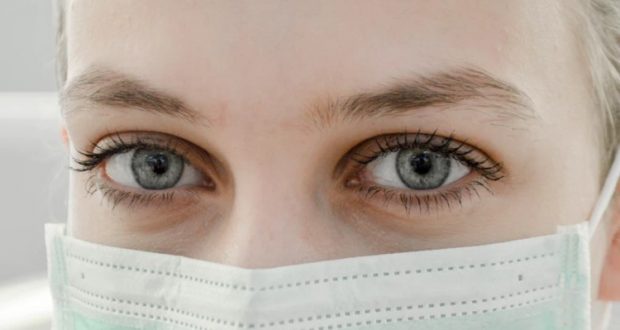By: Guest Author
Published: February 13, 2019
Written by Albin Davis -Guest Contributor
The term “Menopause” has been derived from the Greek word, which means month and cessation. Scientifically, menopause is a physiological phenomenon in woman’s body that corresponds to the end of menstrual cycle and the fertile age.
In this phase, the ovarian activity ends, and the ovaries stop to produce the main female hormones like follicles and estrogens.
A woman goes through the different phases of hormonal changes during her lifetime including puberty, menstrual cycle, pregnancy, and menopause. Menopause causes biological and endocrine changes particularly affecting sex steroid hormone production in women’s body affecting their overall health.
Various Stages of Menopause
As per the World Health Organization, there are three age stages during the midlife age for women. They are:
- Menopause: Menopause is the year of the final physiological menstrual period, unrelated to pregnancy or therapy, which is retrospectively designated as one year without flow in the women of about 40 years of age.
- Premenopause: Premenopausal phase begins between the ages 35 to 39 years. This stage is characterized by the decreased fecundity and fertility because the first manifestation of ovarian follicle depletion and dysfunction occurs despite the absence of your menstrual changes.
- Perimenopause: The time period immediately before menopause and the first year after menopause is called perimenopausal phase.
The major transition period from fertility to infertility is called climacterium. This phase of women’s life consists of the combination of all the three phases including menopause, perimenopause, and postmenopause. Studies show that 75-80% of the peri-post menopausal women experience several symptoms including night sweats, hot flushes, urogenital dryness, mood swings, dizziness, tiredness, irritability, muscle pain, joint pain, and insomnia.
In addition to the onset of psychological alterations and hot flush with the general manifestations of menopause, certain oral problems including burning mouth syndrome (BMS), periodontal disease, and much more are also observed during this phase.
The oral mucosa contains estrogen receptors. The variation in the level of this hormone production directly affects oral health. Generally, a woman suffers from a few oral diseases during peri or post-menopausal years.
A gynecologist treating the peri and postmenopausal problems should be aware of the oral problems a woman is encountering during this period. He should make it a point to refer her to the dental specialist as per her problems and requirements.
A cosmetic dentist, on the other hand, should be sensitized about the hormonal changes that are responsible for the peri and postmenopausal phase in a woman. He should treat her on the basis of her Hormone Replacement Therapy (HRT) status and treatment needs.
Oral Mucosa & Female Hormone
Peri or post menopause period is responsible for affecting your oral tissues in the same way as it affects other parts of women’s body. Hypoestrogenism and ageing causes alteration in the oral cavity. Oral mucosa is same as vaginal mucosa in its response to estrogens as well as histology. Your salivary glands and oral mucosa consist of sex hormone receptors.
Variation in the secretion of the estrogen hormone can affect your oral mucosa either directly or through the neural mechanism. This alters the periodontal health of the woman, who is in her peri or post-menopausal phase.
The common oral problems generally include burning mouth syndrome, the paucity of saliva causing xerostomia, dysesthesia, increased dental caries, atrophic gingivitis, alterations in taste, osteoporotic jaws, and periodontitis.
Studies show that most of the women while visiting a gynecologist generally complains about their oral issues. The most common problems include oral dryness as the salivary flow rate decreases with the onset of menopause.
Menopause & Periodontal Health
The periodontium consists of the supporting structures of your teeth including periodontal ligament, gingiva, alveolar bone, cementum, and much more. The proper health of periodontium depends on sex steroid hormones. They are responsible for making changes in vascular permeability and growth, inflammatory mediators, and differentiation of fibroblasts.
The osteoblasts and fibroblasts of periodontal tissues consist of estrogen receptors, which is responsible for responding to the changed levels of hormones in different stages of a woman’s reproductive life. This affects the overall health of the periodontium.
Many factors play a role in increasing the incidence of periodontal disease in postmenopausal women severely.
Common Dental Problems of Peri or Postmenopausal Women
Some of the most may be summed up as:
- Oral Problems: Some of the common oral discomforts that a menopausal or postmenopausal woman complains include burning sensations, pain, dry mouth, altered taste perception, and much more.
- Bone Loss: Bones become brittle and weaker with the decrease in estrogen levels during the menopausal phase. This is not only limited to your arms and legs but also in the jaw, which affects how removable prosthodontics fit. Research reports show that postmenopausal osteoporotic women require new dentures more after the age of 50 than the women, who are without osteoporotic women.
- Receding Gums: Fluctuations in hormone levels of the postmenopausal women results in sensitive gums, which makes it more vulnerable to recession. This makes those areas of your mouth more susceptible to decay.
- Tooth Loss: This 1996 study showed that the relationship between tooth loss and bone loss decreases in whole- body bone mineral density by “every 1 percent per year” and the risk of tooth loss increases more than four times.The menopausal or the postmenopausal women with low bone mineral density have fewer teeth than normal women.
The views expressed herein this article, written by a guest contributor, do not necessarily represent those of the Red Hot Mamas organization. The content is for informational purposes and should not substitute the advice of your doctor.
 Red Hot Mamas In Charge of Change.
Red Hot Mamas In Charge of Change.




